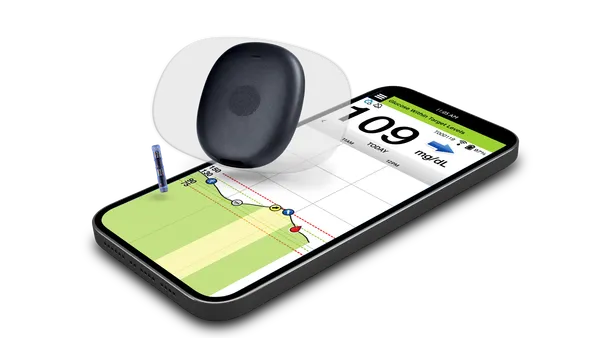Dive Brief:
- Fitbit has quietly rolled out a new set of fitness trackers for members of health plans and self-insured organizations.
- Released without fanfare, Fitbit Inspire and Fitbit Inspire HR are available solely through the company's corporate, wellness, health plan and health system partners and affiliated businesses, according to the company's website.
- No price is given, but some users are posting on Fitbit forums that their health plans have announced availability of Inspire and Inspire HR.
Dive Insight:
Fitbit's push into the health insurance space comes as Apple is in talks with at least three private Medicare plans about subsidizing the cost of Apple Watch so that seniors can monitor their health and fitness. Medicare Advantage plans are an increasingly popular choice among older Americans, and the FDA-approved EKG monitor in the latest Apple Watch could be a winning combination.
Last fall, Fitbit launched Fitbit Care, a connected health platform for health plans and employers that combines coaching and virtual care with the goal of improving wellness and helping people manage chronic conditions. The platform leverages Fitbit's wearables technology with the Fitbit Plus app and Twine Health's disease management platform. Fitbit acquired Twine in February 2018.
The new Inspire and Inspire HR trackers targeting health plan members dovetails nicely with that product. Among Fitbit's health plan partners are Humana and CareFirst.
Fitbit Inspire features many of the same functions as the company's consumer fitness bands, such as activity and sleep tracking, calories burned, reminders to get up and move, text and calendar alerts and goal celebrations.
Inspire HR includes those functionalities plus 24/7 heart rate tracking and real-time heart rate zones, sleep stage breakdown, a variety of exercise modes and GPS-leveraged pace and distance tracking.
Despite the popularity of Fitbit and other activity trackers, there's little evidence showing wellness programs actually work. A 2017 study in Health Matrix: The Journal of Law-Medicine concluded that most programs don't work and some raise legal issues, and advised employers to revisit the usefulness of such programs.
At the least, Fitbit's product and trackers like it can give payers and providers more data to analyze.
A recent survey by the Healthcare Information and Management Systems Society and Fitbit found that half of hospitals and health systems either use or plan to use health coaches to connect with patients and facilitate treatment.











